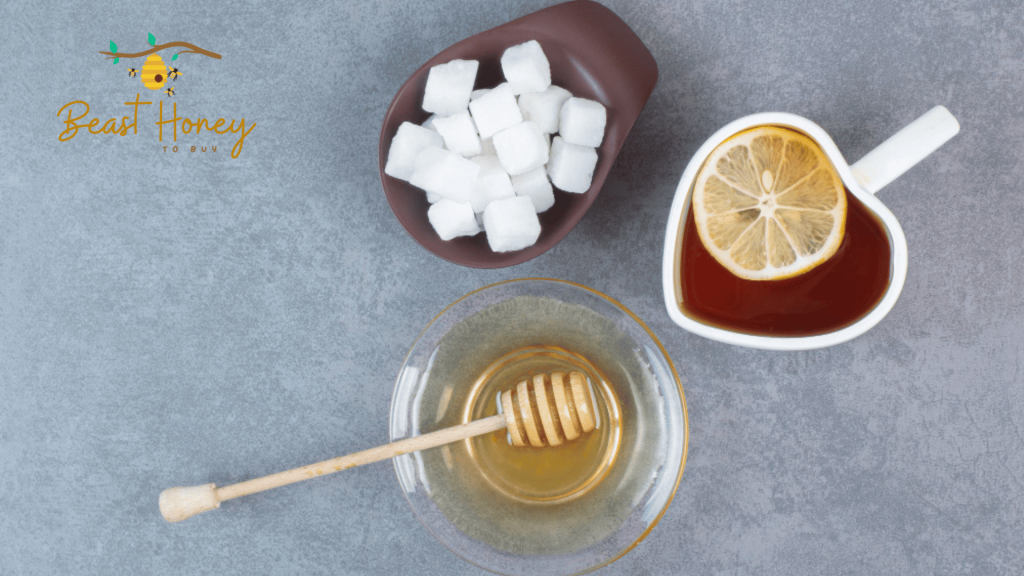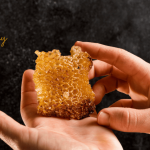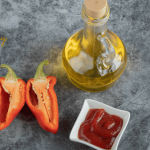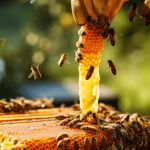Living with diabetes means watching what you eat. Sweeteners like honey and sugar often spark debate. Are they safe for diabetics? Which one is better? Let’s break it down in a simple, friendly way. This article compares honey and sugar, looking at their effects on blood sugar, nutrition, and more. By the end, you’ll know which sweetener might work best for you.
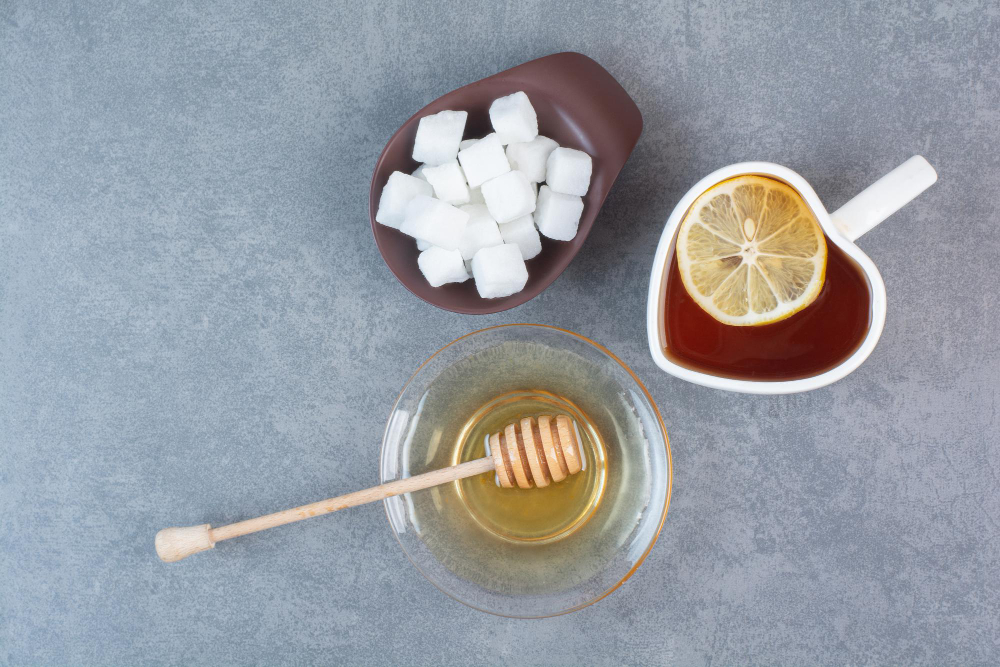
What Are Honey and Sugar?
Before diving in, let’s understand these sweeteners.
Honey: Nature’s Sweetener
Honey comes from bees. It’s a natural syrup made from flower nectar. It’s sweet, sticky, and packed with flavor. Honey contains sugars like fructose and glucose, plus tiny amounts of vitamins, minerals, and antioxidants.
Sugar: The Common Sweetener
Sugar, or table sugar, is made from sugarcane or beets. It’s refined into white granules we use daily. Chemically, it’s sucrose, which breaks down into glucose and fructose in your body. Unlike honey, it has no extra nutrients.
How Do They Affect Blood Sugar?
For diabetics, blood sugar control is key. Let’s see how honey and sugar stack up.
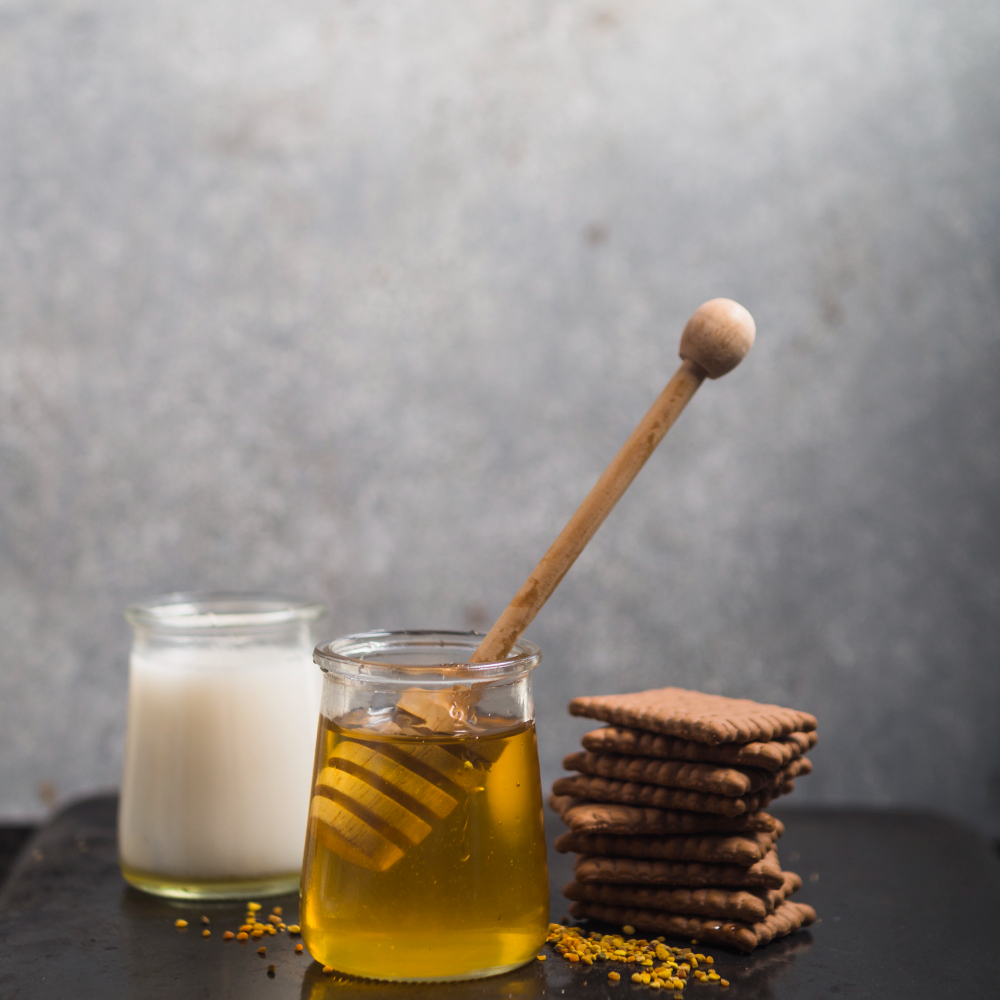
The Glycemic Index (GI) Explained
The glycemic index measures how fast a food raises blood sugar. Lower GI foods are better for diabetics because they cause slower, steadier rises.
- Sugar: Table sugar has a GI of about 65. It’s considered moderate, meaning it raises blood sugar at a medium pace.
- Honey: Honey’s GI varies by type but averages around 55. This is slightly lower than sugar, so it may cause a gentler blood sugar spike.
Why GI Matters
A lower GI can help diabetics manage blood sugar better. For example, eating a spoonful of honey might cause a slower rise than the same amount of sugar. But portion size matters. Too much of either can spike blood sugar.
Nutritional Differences
Beyond blood sugar, what else do honey and sugar offer?
Honey’s Extra Benefits
Honey isn’t just sugar. It has small amounts of
- Antioxidants: These fight inflammation, which can benefit overall health.
- Vitamins and Minerals: Trace amounts of vitamin C, calcium, and iron.
- Antibacterial Properties: Honey can help with minor wounds or sore throats.
For instance, raw honey may support immunity. A diabetic with a cold might find a teaspoon of honey in tea soothing and slightly healthier than sugar.
Sugar’s Lack of Nutrients
Sugar is “empty calories.” It provides energy but no vitamins, minerals, or other benefits. This makes honey seem like a better choice, but the amounts of nutrients in honey are tiny. You’d need to eat a lot to get significant benefits, which isn’t safe for diabetics.
Are They Safe for Diabetics?
Neither honey nor sugar is a free pass. Here’s what to know.
Portion Control Is Crucial
Both honey and sugar are high in carbs. One teaspoon of honey has about 6 grams of carbs, while sugar has 4 grams. For diabetics, carbs directly impact blood sugar. Eating too much of either can cause spikes.
Honey’s Potential Edge
Some studies suggest honey may have a milder effect on blood sugar than sugar. A 2018 study found that small amounts of honey improved blood sugar control in some diabetics compared to sucrose. But the key word is small. Overdoing it cancels any benefits.
Sugar’s Predictability
Sugar’s effect on blood sugar is well-studied. Diabetics often know how their body reacts to it. Honey’s variable GI (depending on the type) can make it less predictable. For example, clover honey has a lower GI than wildflower honey.
Practical Tips for Using Sweeteners
How can diabetics use honey or sugar safely? Here are some ideas.
Choose Honey Wisely
Not all honey is equal. Here’s what to look for:
- Raw or Pure Honey: Avoid processed honey, which may have added sugars.
- Low-GI Varieties: Acacia or clover honey tends to have a lower GI.
- Moderation: Stick to 1–2 teaspoons daily, max.
For example, drizzle a teaspoon of raw honey on plain yogurt for a sweet, diabetic-friendly snack.
Limit Sugar Intake
If you prefer sugar, use it sparingly. Try these tips:
- Measure Portions: Use a teaspoon to avoid overpouring.
- Pair with Fiber: Adding sugar to high-fiber foods, like oatmeal, slows blood sugar spikes.
- Opt for Alternatives: Consider stevia or monk fruit for zero-carb sweetness.
Monitor Blood Sugar
No matter which you choose, check your blood sugar after eating. Everyone’s body reacts differently. For instance, Sarah, a diabetic, found that a teaspoon of honey in her tea didn’t spike her blood sugar much, but sugar did. Test and track to find what works for you.
Other Factors to Consider
Let’s look at a few more angles.
Taste and Cooking
Honey has a stronger, richer flavor than sugar. You might need less to sweeten foods. In baking, honey adds moisture, but it’s trickier to use because it’s liquid. Sugar is easier for recipes like cookies. For diabetics, taste matters less than carb counts.
Cost and Availability
Sugar is cheaper and widely available. Honey, especially raw or organic types, costs more. If you’re on a budget, sugar might be more practical. But a small jar of quality honey can last a long time if used sparingly.
Allergies and Sensitivities
Some people are allergic to honey or sensitive to its pollen content. Sugar is less likely to cause reactions. If you’re new to honey, start with a tiny amount to test for tolerance.
Which Is Better for Diabetics?
So, honey or sugar? There’s no clear winner. It depends on your needs.
- Honey might be slightly better because of its lower GI and minor nutrients. It’s a good choice if you enjoy its flavor and can afford raw varieties. But you must use it carefully.
- Sugar is predictable and budget-friendly. It’s fine in tiny amounts, especially if paired with fiber or protein.
The real key for diabetics is moderation. Neither should be a daily habit in large amounts. Consider low-carb sweeteners like stevia for more flexibility.
Final Thoughts
Managing diabetes doesn’t mean giving up sweetness entirely. Honey and sugar can both fit into a diabetic diet if used wisely. Honey offers a slight edge with its lower GI and trace nutrients, but sugar’s simplicity has its place. Always measure portions, monitor blood sugar, and talk to your doctor or dietitian for personalized advice.
By making smart choices, you can enjoy a touch of sweetness without compromising your health.
Have you tried honey or sugar in your diet?
Share your tips in the comments!
For more information, visit , https://besthoneytobuy.com/

